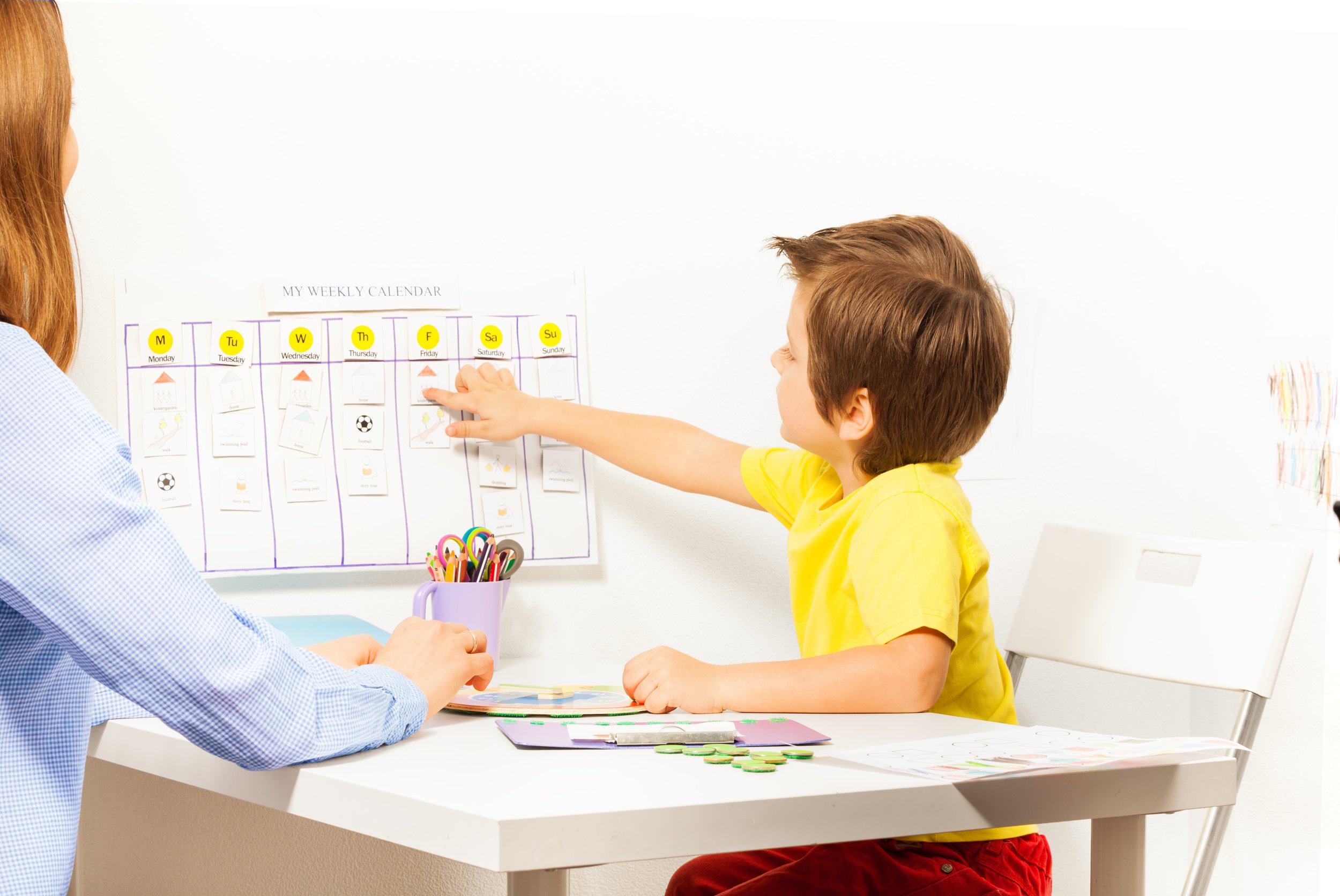Take a Homeschool Retreat
Week 38 of the Happier Homeschool Challenge: Get inspired with a DIY homeschool retreat.
Mothers are the only workers who never get time off, said Anne Morrow Lindbergh, and that’s doubly true for homeschooling mothers, who cheerfully derail dinner prep to look up a particularly strange beetle in the bug guide and listen to impromptu poetry recitations while they’re in the bathroom. (Maybe that’s just me?) But time off every now and then is essential to maintaining your homeschooling mojo. While your books may be neatly shelved and your plans for the coming year ready to go, your homeschool soul could use a little nurturing. Whether you can spare a whole weekend or just a long afternoon, it’s worth the effort to make time for a homeschool retreat.
Retreats may seem like an old-fashioned notion, but the concept of reconnecting with yourself as a person and as a homeschooling parent is practically radical in these days of plugged-in, logged-on, non-stop presence. But homeschoolers are nothing if not radical (in both the original and now-dated modern sense of the word), and a retreat may be an inspiring way to bring fresh energy, insight, and life to your homeschool.
There are as many ways to plan a retreat as there are to homeschool, so we’ve put together a few suggestions that might work for your retreat or that might just serve as inspiration for your own retreat ideas.
Make your plans
If you’re like me, you have a never-ending list of books you’d like to read and lectures you’d like to hear. Whip out that list and start narrowing down the options. Are you starting to freak out about the prospect of putting together transcripts for college? Maybe it’s time to download that mp3 on homeschooling high school. Do you need help with setting a rhythm for your days? A Waldorf book about parenting young children could be a good bet. Try to focus on a mix of practical information—you want to change up your science curriculum or you need help getting inspired to teach writing next year—and strictly inspirational stuff. (We’ve included some great books and lectures below.) And go ahead and throw in all those awesome curriculum catalogs you’ve been hoarding so you can finally flip through them at your leisure. Try to add a mix of media: You won’t want to spend the whole day listening to mp3s or staring at your computer screen.
Choose a location
If you’re an introvert like me, the thought of a weekend of pure alone time probably seems blissful. But if you’re a social animal, you may get more from your weekend retreat if you invite a friend or two to join you. Either way, try to get away from the everyday—it’s going to be hard to give yourself over to recharging your batteries if you’re staring down a pile of laundry or constantly jumping up to refill someone’s cup of juice. If you can, splurge on a location that inspires you to relax, whether that’s a fancy hotel with room service and plush robes or a cozy cabin surrounded by hiking trails. Even an easy-on-the-budget, no-frills hotel room can make a comfortable setting for your retreat if you bring your electric tea kettle and a few candles. If money’s an issue, consider swapping baby-sitting with another homeschooling mom and set up your retreat in a spot with free wi-fi, like the library or a coffee shop.
Inspire yourself
Whether it’s your first year homeschooling or your fifteenth, you’re your own best inspiration. Start your retreat by making a list of all the things you’ve done right: great trips you’ve taken, fun art or science activities you’ve done, parenting moments where you got it just right. If you’ve been homeschooling, use this time to write down what’s really worked for you in the past, whether it’s starting the morning with yoga, doing narrations with Story of the World, or making Monday your baking day. Not only will making this list of homeschool successes remind you that you’re already doing a great job homeschooling, it will also help guide your choices for the coming year and may remind you of fun stuff that’s worth incorporating in your homeschool plans.
Define your homeschool’s mission
What’s the purpose of your homeschool? Ideally, you have an answer to that question that sums up your homeschool’s philosophy: “To grow curious, engaged children who believe they can learn anything and do anything if they are willing to do the work” or “Our homeschool teaches our children how to find, evaluate, and use information so that they can achieve whatever goals they set for themselves” are both examples of the kinds of big-picture goals your homeschool might have. Not so much of a mission statement writer? Make a homeschool vision board instead, putting together quotes, images, and other items that represent your ideas of what you want your homeschool to be like in the coming months.
Set your goals
In addition to setting academic goals for your students, consider setting some goals for yourself. Whether you’d like to be better informed about chemistry before you tackle the subject next year or you’re longing to be less stressed about unfinished assignments, take a few minutes to think about what you’d like to accomplish personally this year. Homeschooling can be an all-consuming activity, and it’s easy to be so absorbed in guiding your kids that you lose track of your own needs and wants. Use this opportunity to focus on yourself and to make a map of where you’d like to be this time next year as a teacher, a parent, and a person.
Make a little you-time
The purpose of your retreat is to recharge your homeschooling batteries, so build in some time to just relax. Giving your brain free reign inspires new ideas and connections that you don’t get when you’re dealing with the daily grind. You know what gets your creative energy flowing: Maybe it’s a hike up a waterfall, a session with a massage therapist, or an hour of uninterrupted knitting. Treat yourself to your favorite leisure activity, and you’ll be surprised by how it improves your mental clarity.
Write your bad day mantra
Bad days happen, and when you’re doing double duty as teacher and parent, it’s easy to take them personally. Right now, while you’re feeling energized and excited about the coming year, write a message to yourself to read when you’re having a bad day. Think about the words you need to hear when a math lesson ends in tears or you snap at your toddler for making a mess of the science center, and write them down in your best handwriting. Keep this message to yourself close, and pull it out when you need to as a much-needed reminder that you’re doing the right thing even when things don’t go just right.
Ideally, you should leave your retreat with a clear vision of what you want the coming year to look like (and the confidence to change your mind about that vision any time), a handful of new ideas, and a renewed sense of enthusiasm for the homeschooling fun ahead. But even if you just come away with some good questions, you can consider a retreat time well spent.
Tips for making your homeschool retreat a success:
Make a schedule to keep focused
Turn off your phone, log out of Facebook, and don’t check your email
Set aside time for just relaxing as well as time for being productive.
Food for Thought
Listen:
Susan Wise Bauer: Homeschooling the Real (Distractable, Impatient, Argumentative, Unenthusiastic, Non-Book-Loving, Inattentive, Poky, Vague) Child
The Homeschool Scholar: A Homeschool Parents Guide to Grades, Credits and Transcripts
Pam Sorooshian: Unschooling and Math
Donna Simmons: Talking Pictorially and Living Actively with your Young Child
Read:
Rafe Esquith: Lighting Their Fires: How Parents and Teachers Can Raise Extraordinary Kids in a Mixed-up, Muddled-up, Shook-up World
James W. Loewen: Teaching What Really Happened: How To Avoid The Tyranny of Textbooks and Get Students Excited About Doing History
Sharifa Oppenheimer: Heaven on Earth: A Handbook for Parents of Young Children
David Mulroy: The War Against Grammar
Lori Pickert: Project-Based Homeschooling
Grace Llewellyn: The Teenage Liberation Handbook: How to Quit School and Get a Real Life and Education

































Could your homeschool use a happiness boost?
Whether you’re a brand-new homeschooler or you’ve got a lot of experience homeschooling, you know that joy is the point: When your homeschool is happy, all’s right with the world. Of course, homeschool also comes with plenty of worries and pressure, so it’s nice to have a reminder that happiness matters. That’s where this little book comes in. With 52 scientifically sound, homeschooler-tested suggestions — that’s one new idea for every week of the year — it’s a practical and inspirational way to keep the joy flowing in your homeschool.